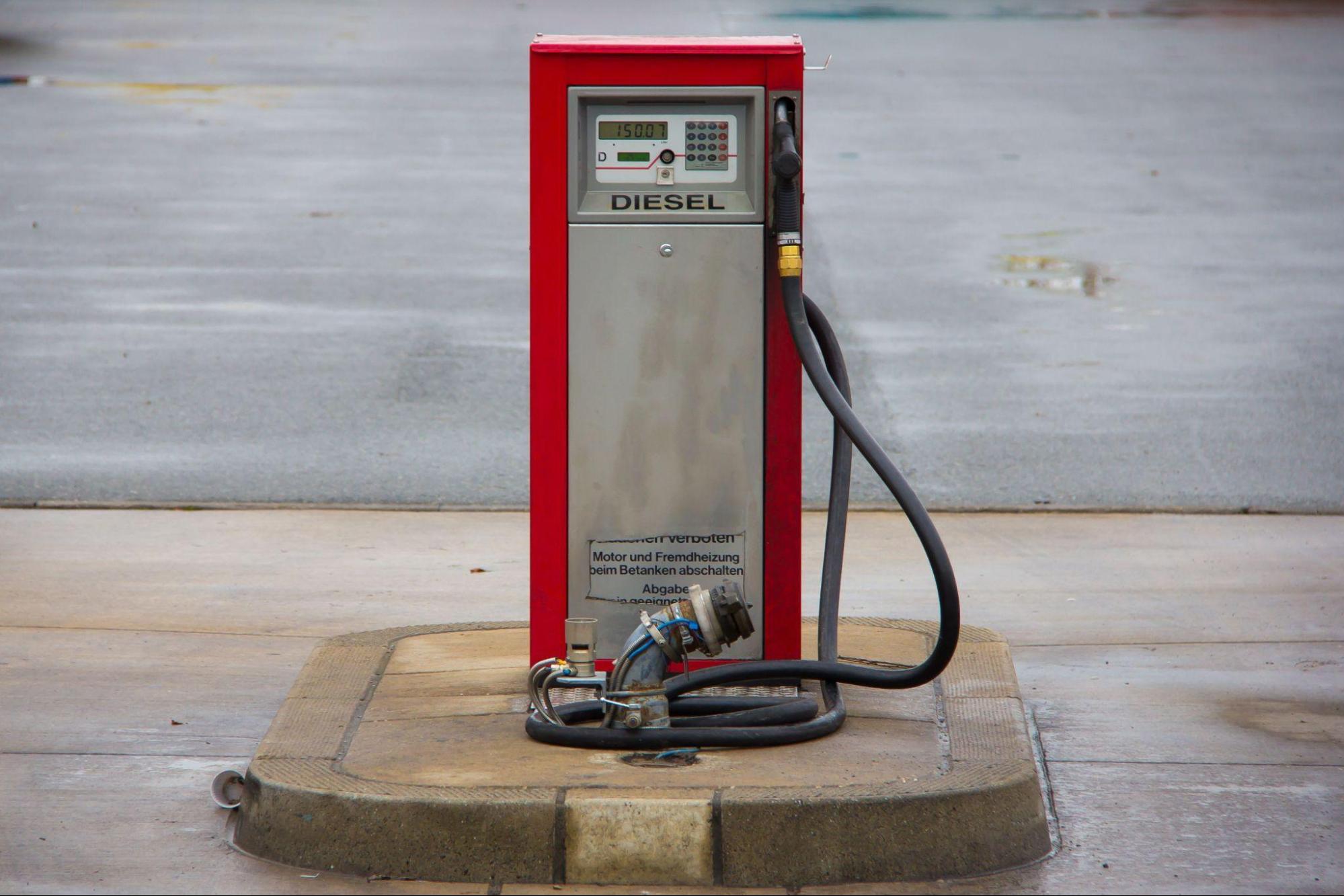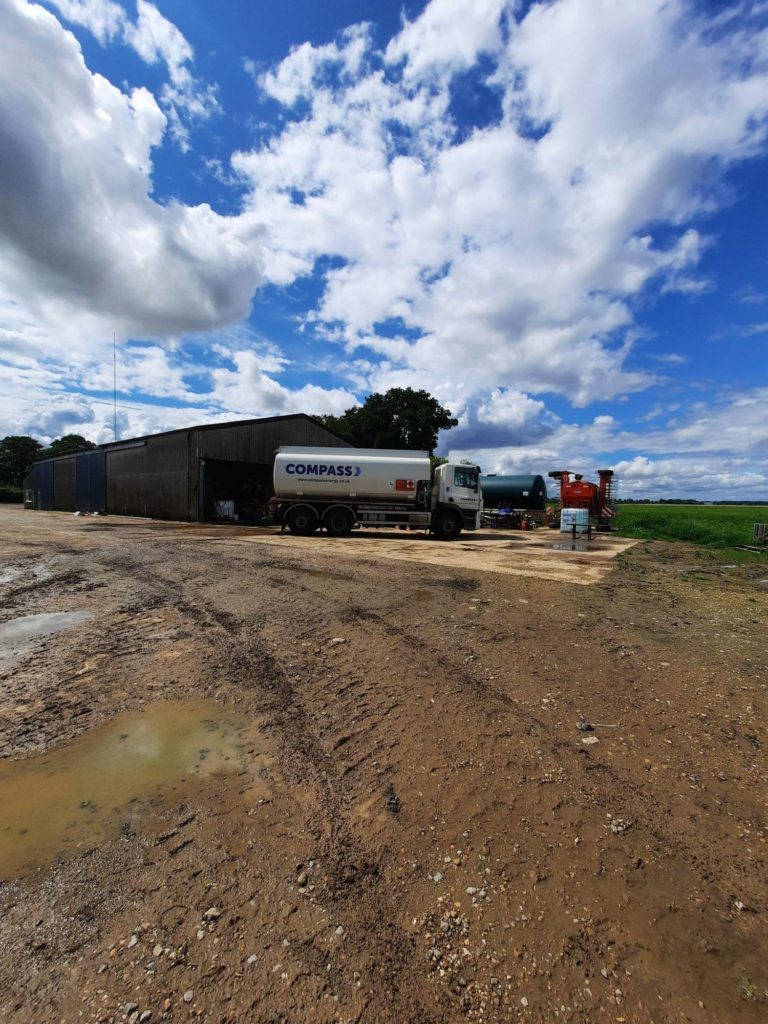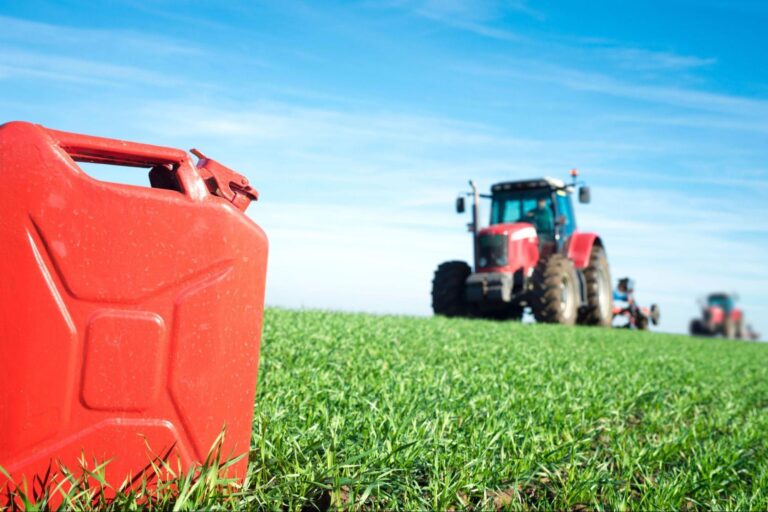Common Misconceptions About Red Diesel and Its Uses in Agricultural
Red diesel, also called gas oil, is a fuel that has been in the spotlight in the agricultural sector for some time now. It may look like just another variant of diesel, but it comes under certain regulations that distinguishes it from standard road fuel.
Ever noticed its red colour? It’s not there just like that, it has been dyed to set it apart from the regular diesel for tax purposes. Red diesel is taxed at a lower rate because it is intended for use in specific industries, such as farming, construction, and even in machinery like tractors and combine harvesters. However, there are many misconceptions about red diesel uses in agriculture.
Many people believe red diesel can be used freely in any vehicle or under any circumstances, but this is far from the truth. The penalties for misusing red diesel are severe, including hefty fines. Misunderstandings about its legality and usage can lead to unintended breaches of the law. Understanding the ins and outs of red diesel regulations is important to ensure compliance and efficient operation in the agricultural sector.
In this blog, understand about the most common misconceptions surrounding red diesel, clarifying its legitimate uses in agriculture, and helping farmers and others in the industry avoid costly mistakes.
Common Misconceptions About Red Diesel

Misconception 1: Red diesel can be used in any vehicle
Truth: Red diesel is strictly regulated and can only be used in off-road vehicles and machinery, such as tractors, combine harvesters, and construction equipment. Using it in standard road vehicles is illegal and can lead to significant fines or prosecution.
Misconception 2: Red diesel is of lower quality than regular diesel
Truth: Red diesel has chemicals identical to that of regular diesel. The only things that distinguish red diesel from regular diesel is its red dye and certain markers that are added for identification purpose. When it comes to their performance, red diesel performs the same as regular diesel.
Misconception 3: You can avoid penalties by flushing red diesel out of the tank
Truth: Even if you flush red diesel, its traces can remain in the fuel system. Apart from this, the authorities have advanced methods to detect its residues. Attempting to remove red diesel before switching to regular fuel does not eliminate the risk of penalties.
Misconception 4: Red diesel is exempted from all taxes
Truth: Red diesel is not tax-free, but it is taxed at a lower rate than the standard diesel. Its lower taxation rate is specifically for industries like agriculture, construction, and marine usage. Misuse outside these industries is illegal.
Misconception 5: Red diesel can be freely purchased and stored without regulation
Truth: Red diesel comes under strict regulations, including how much can be stored and the conditions for storage. Anyone storing red diesel must make sure it complies with environmental and safety regulations to avoid spills, contamination, and legal issues.
Red Diesel Uses in Agriculture

- Powering Tractors
Tractors are the backbone of modern agriculture, and red diesel is the primary fuel that powers these machines. Be it ploughing fields, planting seeds, spreading fertiliser, or transporting or harvesting crops, tractors are used to perform a lot of tasks on the farm.
As red diesel is cheaper than the regular diesel, it helps farmers manage their operational expenses while maintaining the power and efficiency needed for these demanding activities. Tractors, often running for extended periods, rely heavily on this fuel to keep agricultural processes moving smoothly.
- Fuelling Combine Harvesters
Another important machinery for farmers are combine harvesters, as they play an important role in the harvesting process by cutting, threshing, separating grains such as barley, oats, and wheat. This large machinery, too, requires a reliable and efficient source of fuel to work on huge farmlands.
Red diesel is the most preferred fuel for combine harvesters, as it is cost-effective and has the ability to power such high-performance machines without compromising their productivity. Farmers depend on red diesel to ensure that the harvest is gathered quickly and efficiently, preventing crop losses due to weather or other factors.
- Ensuring Suitable Soil with Ploughs and Tillers
Ploughs and tillers play a vital role in soil preparation before planting the crops. As these machines are heavy-duty, red diesel is used to power their engines, enabling them to break up and turn over the soil, which ensures that the soil is aerated and is suitable for growing crops.
Such machines operate under tough conditions, often working over uneven terrain and across large fields, and so, having a reliable fuel source becomes even more important.
By using red diesel as the primary fuel for their machinery, farmers are not only able to manage the costs of running them, but they are also able to make sure that their land is ready for the next planting cycle.
- Water Management with Irrigation Pumps
Water management is important in crop growth, and irrigation pumps come into play here. Irrigation pumps are usually used where electricity supply is not stable. To ensure that these heavy machineries perform the tasks successfully, they are fuelled with red diesel. These pumps are used to draw water from sources such as rivers, wells, or lakes to distribute water across the fields to make sure that the crops receive adequate water.
Red diesel allows irrigation pumps to run consistently and efficiently, especially during dry spells when natural rainfall is insufficient. Proper irrigation is the key to maintaining healthy crops, and red diesel ensures that farmers can water their fields when they need it most.
- Safeguarding Crops with Grain Dryers
After harvesting crops such as wheat, corn, and barley, they must be dried to reduce their moisture content and prevent mould or spoilage during storage. Red diesel is frequently used to fuel grain dryers, which apply heat to the harvested crops, making sure that they are safely stored without risking damage from excess moisture.
Using grain dryers becomes important in climates where high humidity or unexpected rain can jeopardise the quality of the harvest. Using red diesel helps farmers dry their crops efficiently, protecting their yields and ensuring they reach market in good condition.
- Generators
As farms are usually in rural or remote areas, they require additional sources of power to support agricultural operations. Generators fuelled by red diesel help provide electricity for various important functions such as refrigeration, lighting, and operation of farmland machineries.
Generators are especially useful during harvest time, when extended working hours and extra power are needed to process and store crops. Red diesel comes into play as a reliable and cost-effective solution, making sure that farmers maintain productivity even when off-grid or during power outages.
Conclusion
Red diesel has been evidently playing an important role in the agricultural sector, be it powering heavy-duty machinery to support daily operations and ensuring proper farming process or be it helping farmers manage the costs incurred from ploughing to storage of crops. However, despite heavy red diesel uses in agriculture, there are numerous misconceptions about what red diesel is and how it can be legally used.
Understanding the regulations surrounding red diesel is essential for farmers to make sure that the usage is in compliance with the law and avoid costly penalties. Misusing red diesel, whether intentionally or due to misunderstanding, can lead to significant fines and legal repercussions, so it becomes vital that those in the agriculture sector remain well-informed.
The belief that red diesel can be used freely in any vehicle, or that it is somehow inferior to standard diesel, are just a few of the common myths that persist. By knowing the facts, farmers can use red diesel efficiently and legally, which helps in making sure that their operations run smoothly while benefiting from the tax relief it offers.
A proper understanding of the use of red diesel will help farmers continue to grow quality crops successfully and manage costs while staying on the right side of the law.








